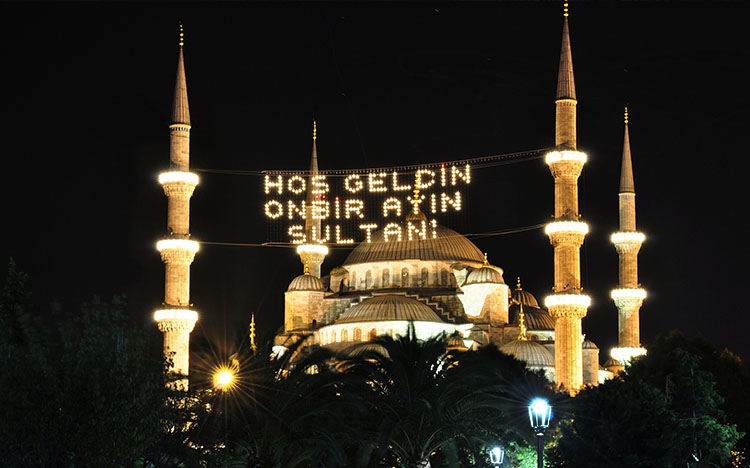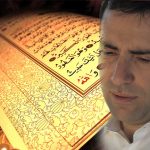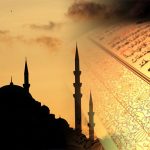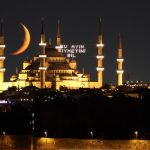I would like to start by taking refuge in our Merciful Allah. May the feast and life of all of us be blessed.
Ramadan feast is a one-day religious holiday that is religiously obliged to be celebrated by Muslim people of the Islamic religion around the world at the end of the month of Ramadan, when fitrah is given. It can be extended officially and personally as long as desired.
Ramadan feast is the occasion of our gratitude to Allah who created us and surrounds us with His infinite blessings. Because we wish to be an acceptable servant in the sight of our Almighty Allah , whose mercy and treats are abundant. Our Allah also wants us to share the blessings He has bestowed upon us, such as our wealth, health, material and spiritual wealth, as well as the blessings He has bestowed upon us, with other servants as a good news. In other words, until the morning of the feast, we must make a poor or needy person happy. Who would not want to be worthy of this command and good news of Allah , the sole Creator of everything, who gives as He gives, who increases the favour of the righteous even more!
It is unreasonable to call this holiday, which is considered as a worship by the Muslims of the world, as a candy holiday. It would be very shallow and wrong to commemorate this holiday, which we celebrate at the end of such an important and blessed month of Ramadan, which includes the night of Qadr, in which the Holy Quran descended, with a name that reminds us of candy with a marketing odour.
Ramadan Feast is in a sense a fasting holiday. I think that the feast of the fasting should not be commemorated with candy. Because when you change the name of a work or object, you start to change the original. And so it happened.
It is rumoured that in the Ottoman Empire, the agreements of the janissaries with the sultan were called akit and sugar was distributed at the end. Since this sugar was in the nature of a promise, it was called akide sugar. In other words, when the matter was concluded, it was sweetened by distributing sugar to be remembered as sweet. As can be understood, it is not possible to call the Feast of Fitr(Ramadan Feast) as the Feast of Sugar, due to the incomparable differences in meaning.
The feast of joy of Muslims who fast for 30 days in the blessed month of Ramadan for the sake of Allah is now celebrated in our country under the name of Ramadan Feast because the feast of the fasting is easier on the tongue.
Why do we call it a feast of joy? Because fıtır is also hilkat, that is, birth or existence. It is the very nature of man. Based on this knowledge, it is of course not the same as being blessed and nourished in 11 months of the year, if a person does not eat morning and lunch during the month of Ramadan and eats only at sahur and iftar times.
For the sake of Allah, in the month of Ramadan, when the hearts are filled with the Qur’an and dhikr and the body parts undergoing spiritual discipline reach the peak in tasting the pleasure of fasting, we undergo divine therapy in a way that is free from negative behaviour, bad thoughts and words.
At the end of Ramadan, the sultan of 11 months, the month of mercy, forgiveness, abundance and salvation from eternal torment, our Lord asks us to experience the feast of joy in a way that will mean that our body will break the fast. So this feast is the feast of the fasting person. This is because the Prophet sweetened his mouth with dates in the morning on his way to the Eid prayer.
Almighty Allah has not made fasting obligatory on us as a hardship. This worship is an exceptional honour of Allah, the owner of the body and soul, to rest and re-energise the body and soul. In order to deserve Eid al-Fitr, it is necessary to fulfil the fast properly. Already in the verses about fasting in the Surah al-Baqara, fasting has been made obligatory for all believing human beings. The traveller and the sick are permitted until these conditions are over. However, the divine address in the continuation of the verse, “If you keep the fast, it is better for you”, is extremely remarkable for us. If a person endeavours to fast, it may be instrumental in the healing of his illness, that is, in his speedy recovery. If he is a traveller, the duration and hardship of this journey will be reduced. The Almighty Allah, who gives the good news, is not incapable of realising this promise while He favours us, His servants, to the extent that we do not deserve, biiznillah. Let’s take advantage of this month of purification and embrace prayers.
We have left behind another blessed Qur’anic month, Ramadan-i Sharif. Inshallah, we have been among the servants who have been purified from their sins and opened clean pages. With the hope that clean pages have been opened, with faith and a sincere stance with the Qur’an, let us endeavour to carry out acts that pave the way for humanity by signing good deeds, inshallah.
I would like to quote the words of the ageless ancestors.
They say; Not with Baha, but with excuse, my son, excuse, everything is excuse…
We wish to reach Ramadan, the month of blessings, the month of forgiveness, which is the excuse for the erasure of sins and bad deeds and the increase of good deeds and good deeds…
Allah bless you.









